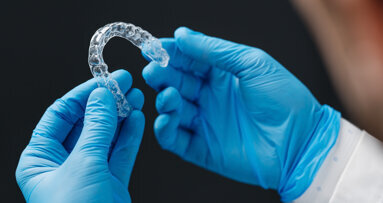WASHINGTON, US: Natural compounds continue to attract attention as potential alternatives to synthetic agents in caries prevention. A research team at the University of Wyoming in Laramie in the US has identified a maple-derived compound that is a potent inhibitor of Streptococcus mutans biofilm formation. The study suggests that this organic compound could be incorporated into oral care products as a safe, natural anti-biofilm agent, especially for young children.
The study builds on previous research into plant polyphenols with anti-biofilm properties. The research team found that certain compounds from maple wood and sap inhibit sortase A, an enzyme that attaches surface proteins to bacterial cell walls, preventing S. mutans from attaching to tooth surfaces.
“Since S. mutans initiates cavities by forming biofilms on teeth and producing acid that destroys enamel, we asked: could maple polyphenols also inhibit S. mutans biofilms? That question drove this study,” co-author Dr Mark Gomelsky, Martha Gilliam Professor of Microbiology and director of the microbiology programme at the university, said in a press release.
Laboratory tests confirmed that maple-derived polyphenol (-)-epicatechin gallate (ECG) binds to and inhibits sortase A, effectively blocking S. mutans biofilm formation on both synthetic tooth models and hydroxyapatite disks. ECG was also found to be more effective than the green tea polyphenol (-)-epigallocatechin gallate, which is already used in some dental products.
The researchers believe that incorporating ECG into dental products could offer an alternative to conventional approaches that focus on killing bacteria or remineralising enamel. “The anti-biofilm approach using edible polyphenols is especially appealing for young children,” Prof. Gomelsky explained, because of the risk of toxicity with conventional mouthwashes. A safer alternative, such as a mouthwash containing an effective dose of an edible polyphenol, could provide protection without harmful side effects,” he concluded.
Besides its safety profile, maple-derived ECG offers the key advantage of cost-effectiveness and does not stain tooth surfaces. The team is now working through a university startup to develop plant polyphenol-based dental formulations.
The study, titled “Maple polyphenols inhibit sortase and drastically reduce Streptococcus mutans biofilms”, was published online on 7 August 2025 in Microbiology Spectrum, ahead of inclusion in an issue.
Topics:
Tags:
ORADEA, Romania: Ongoing research continues to illuminate the plethora of ways in which oral and systemic health influence each other. While odontogenic ...
ANN ARBOR, Mich., US: As the number of dental implants placed globally continues to rise, so too does the clinical significance of understanding ...
VIENNA, Austria: On 16 May at EuroPerio11, the Spanish Society of Periodontology and Osseointegration presented a new report on how antiseptic mouthwashes ...
Live webinar
Tue. 24 February 2026
1:00 pm EST (New York)
Prof. Dr. Markus B. Hürzeler
Live webinar
Tue. 24 February 2026
3:00 pm EST (New York)
Prof. Dr. Marcel A. Wainwright DDS, PhD
Live webinar
Wed. 25 February 2026
11:00 am EST (New York)
Prof. Dr. Daniel Edelhoff
Live webinar
Wed. 25 February 2026
1:00 pm EST (New York)
Live webinar
Wed. 25 February 2026
8:00 pm EST (New York)
Live webinar
Tue. 3 March 2026
11:00 am EST (New York)
Dr. Omar Lugo Cirujano Maxilofacial
Live webinar
Tue. 3 March 2026
8:00 pm EST (New York)
Dr. Vasiliki Maseli DDS, MS, EdM



 Austria / Österreich
Austria / Österreich
 Bosnia and Herzegovina / Босна и Херцеговина
Bosnia and Herzegovina / Босна и Херцеговина
 Bulgaria / България
Bulgaria / България
 Croatia / Hrvatska
Croatia / Hrvatska
 Czech Republic & Slovakia / Česká republika & Slovensko
Czech Republic & Slovakia / Česká republika & Slovensko
 France / France
France / France
 Germany / Deutschland
Germany / Deutschland
 Greece / ΕΛΛΑΔΑ
Greece / ΕΛΛΑΔΑ
 Hungary / Hungary
Hungary / Hungary
 Italy / Italia
Italy / Italia
 Netherlands / Nederland
Netherlands / Nederland
 Nordic / Nordic
Nordic / Nordic
 Poland / Polska
Poland / Polska
 Portugal / Portugal
Portugal / Portugal
 Romania & Moldova / România & Moldova
Romania & Moldova / România & Moldova
 Slovenia / Slovenija
Slovenia / Slovenija
 Serbia & Montenegro / Србија и Црна Гора
Serbia & Montenegro / Србија и Црна Гора
 Spain / España
Spain / España
 Switzerland / Schweiz
Switzerland / Schweiz
 Turkey / Türkiye
Turkey / Türkiye
 UK & Ireland / UK & Ireland
UK & Ireland / UK & Ireland
 Brazil / Brasil
Brazil / Brasil
 Canada / Canada
Canada / Canada
 Latin America / Latinoamérica
Latin America / Latinoamérica
 USA / USA
USA / USA
 China / 中国
China / 中国
 India / भारत गणराज्य
India / भारत गणराज्य
 Pakistan / Pākistān
Pakistan / Pākistān
 Vietnam / Việt Nam
Vietnam / Việt Nam
 ASEAN / ASEAN
ASEAN / ASEAN
 Israel / מְדִינַת יִשְׂרָאֵל
Israel / מְדִינַת יִשְׂרָאֵל
 Algeria, Morocco & Tunisia / الجزائر والمغرب وتونس
Algeria, Morocco & Tunisia / الجزائر والمغرب وتونس
 Middle East / Middle East
Middle East / Middle East






































To post a reply please login or register